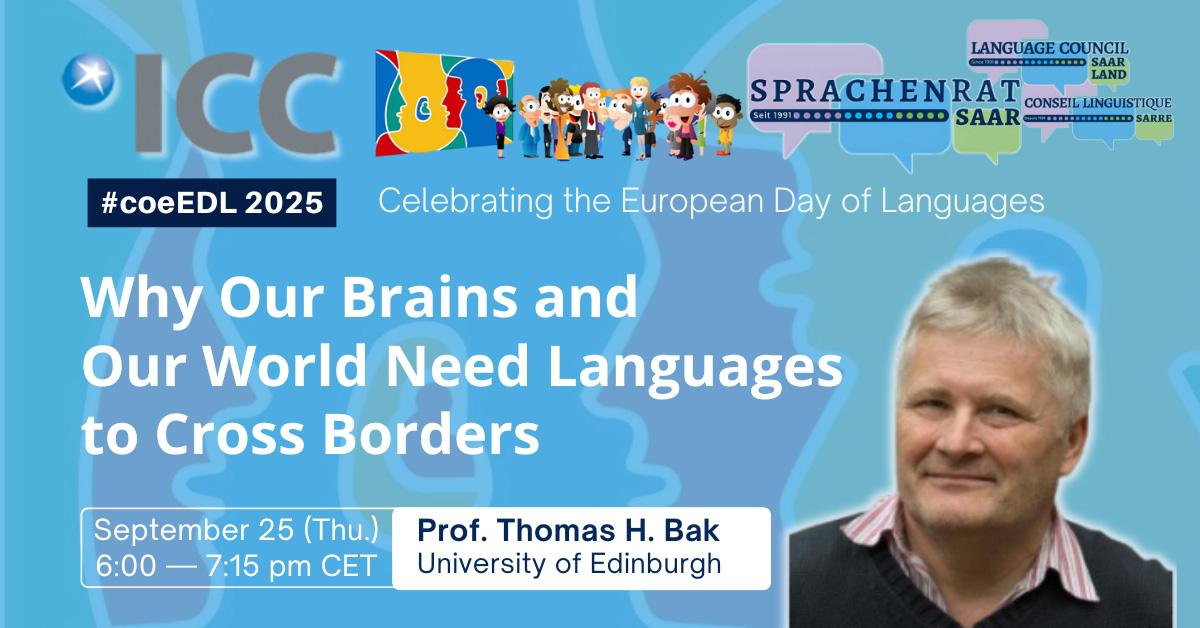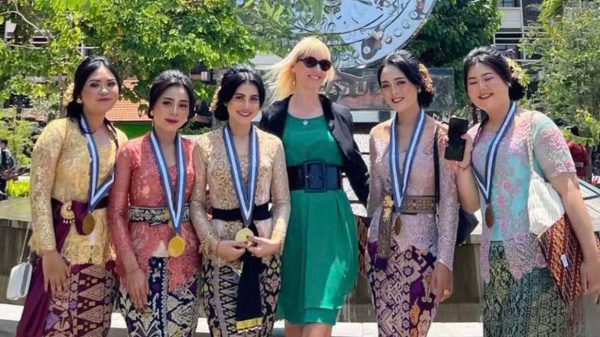
22.09.25
European Day of Languages Webinar: Why Our Brains and Our World Need Languages to Cross Borders
The International Language Association, in partnership with the Language Council of Saarland (Germany), will host a special online event to mark the European Day of Languages (26 September).
Date & Time: Thursday, 25 September 2025, 18:00–19:15 CET
Speaker: Prof. Thomas H. Bak, University of Edinburgh
Moderators: Prof. Thomas Tinnefeld (Language Council of Saarland) and Barry Tomalin (ICC)
This free webinar highlights how languages enrich both minds and communities. Prof. Bak will present cutting-edge research from neuroscience and clinical studies, revealing how multilingualism strengthens the brain and enhances social connection.
In this talk, Bak will argue that human language is likely to have developed in a multilingual context and therefore, speaking several languages can be considered as the natural state of human mind, brain and society and the most natural form of mental exercise. This includes not only classical cases of children growing up bilingually, but also learning and using new languages across the whole lifespan. This multilingual default assumption offers an explanation for a wide range of recent research findings, from positive effects of even short periods of intensive language learning on attention to a delayed onset of dementia and a better cognitive recovery from stroke in older bilinguals. The cognitive and clinical results are further supported by converging evidence from other methodologies, including neurophysiology and neuroimaging. In addition, language learning can provide, even in the case of online delivery, a valuable source of social interaction. However, vibrant multilingualism is not only a matter of personal choice and preference. It needs the presence of different languages in our environment and their appreciation in society. Bak will highlight, therefore, the fundamental difference between genuine crossing borders through multilingualism and its opposite: a neo-colonial monolingual globalisation.
Key insights include:
- Even short periods of language learning can sharpen attention and memory.
- Speaking more than one language may help delay dementia and support stroke recovery.
- The latest evidence in the ongoing “bilingual advantage” debate.
- How language learning fosters meaningful interaction across cultures.
Join this inspiring session to celebrate European Day of Languages and find out about the latest and exciting updates of our Healthy Linguistic Diet framework.
Registration is free and open to all. Don’t miss this chance to explore why our brains truly need languages to cross borders.
- ICC webinar webpage: https://icc-languages.eu/icc-webinars/
- Zoom registration form: https://us02web.zoom.us/meeting/register/TiVdAe5OQge6pVIFG_A7EQ


